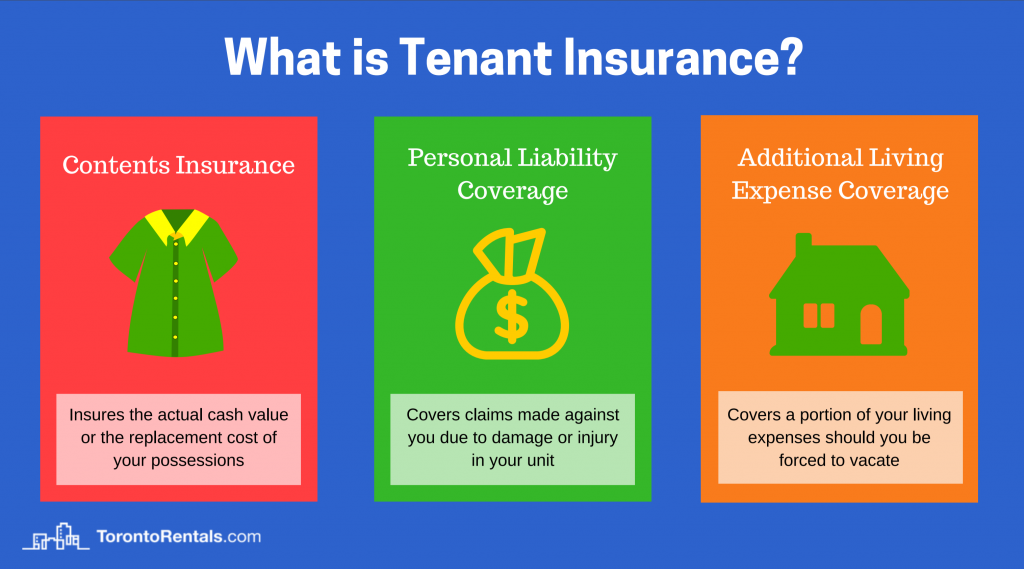What is Proof of Tenant Insurance?

Proof of tenant insurance is a document that demonstrates you have a tenant insurance policy in place. Landlords often require tenants to have tenant insurance as a condition of renting a property. Tenant insurance is a type of insurance that protects your personal belongings and provides liability coverage in case of an unexpected event.
It can help you recover financially from situations such as theft, fire, or water damage.
Benefits of Tenant Insurance, Proof of tenant insurance
Tenant insurance provides several benefits to renters:
- Protection for Personal Belongings:Tenant insurance covers your personal possessions against various perils, such as fire, theft, vandalism, and natural disasters. This coverage helps you replace or repair damaged or stolen items, minimizing financial losses.
- Liability Coverage:Tenant insurance provides liability coverage, protecting you from lawsuits if someone is injured on your property. This coverage can help pay for legal expenses and any damages awarded to the injured party.
- Additional Living Expenses:If your rental unit becomes uninhabitable due to a covered event, tenant insurance can help pay for temporary accommodation and other living expenses until your home is repaired or rebuilt.
- Peace of Mind:Knowing you have tenant insurance provides peace of mind, knowing you are financially protected in case of an unexpected event.
Typical Coverage in a Tenant Insurance Policy
A typical tenant insurance policy includes several types of coverage:
- Personal Property Coverage:This coverage protects your personal belongings, such as furniture, electronics, clothing, and jewelry, against damage or loss due to covered perils.
- Liability Coverage:This coverage protects you from lawsuits if someone is injured on your property or you cause damage to someone else’s property.
- Additional Living Expenses:This coverage helps pay for temporary accommodation, food, and other living expenses if your rental unit becomes uninhabitable due to a covered event.
- Loss of Use Coverage:This coverage provides financial assistance if you are unable to use your rental unit due to a covered event.
- Legal Defense Costs:This coverage helps pay for legal expenses if you are sued due to a covered event.
Types of Tenant Insurance Policies
Tenant insurance policies can vary depending on the insurer and the level of coverage you choose. Here is a table comparing the essential features of different types of tenant insurance policies:
| Type of Policy | Coverage | Benefits | Cost |
|---|---|---|---|
| Basic | Covers basic perils such as fire, theft, and vandalism. | Provides essential protection for your belongings and liability. | Lower premium. |
| Comprehensive | Covers a wider range of perils, including natural disasters, water damage, and personal liability. | Offers more extensive protection for your belongings and liability. | Higher premium. |
| Customizable | Allows you to choose the coverage options that best suit your needs and budget. | Provides flexibility and tailored protection. | Premium varies based on selected coverage options. |
Understanding the Coverage of Tenant Insurance
Tenant insurance provides financial protection against various risks that could affect your belongings and personal liability while renting a property. This insurance policy can safeguard you from unexpected events, ensuring peace of mind and financial security.
Types of Coverage Offered
Tenant insurance policies typically offer a range of coverage options to cater to different needs and circumstances. These coverages can be customized to provide the level of protection you require.
- Personal Property Coverage: This coverage protects your personal belongings against damage or loss due to covered perils, such as fire, theft, vandalism, and natural disasters. It typically covers items like furniture, electronics, clothing, and jewelry.
- Liability Coverage: This coverage protects you from financial liability if someone is injured or their property is damaged on your premises. For example, if a visitor slips and falls in your apartment, liability coverage can help cover medical expenses and legal costs.
- Additional Living Expenses: If your apartment becomes uninhabitable due to a covered event, this coverage can help pay for temporary accommodation, food, and other essential expenses until you can return to your home.
- Personal Effects Coverage: This coverage extends protection to your personal belongings while they are away from your apartment, such as during travel or when stored in a self-storage unit.
- Loss of Use Coverage: This coverage provides financial support if you are unable to use your apartment due to a covered event, such as a fire or flood. It can help cover the cost of temporary accommodation and other expenses.
Examples of Covered Events
Tenant insurance policies typically cover a wide range of events, providing protection against unexpected occurrences. Here are some examples:
- Fire: A fire in your apartment or the building could damage your belongings and make your apartment uninhabitable. Tenant insurance can help cover the cost of repairs or replacement of damaged property and provide temporary accommodation.
- Theft: If your belongings are stolen from your apartment, tenant insurance can help replace them. This coverage typically includes protection against both burglary and robbery.
- Vandalism: Vandalism can damage your belongings and make your apartment unsafe. Tenant insurance can help cover the cost of repairs or replacement of damaged property.
- Water Damage: Water damage from a burst pipe, leaking roof, or flooding can cause significant damage to your belongings and make your apartment uninhabitable. Tenant insurance can help cover the cost of repairs and replacement of damaged property.
- Natural Disasters: Tenant insurance can provide coverage for damage caused by natural disasters such as earthquakes, tornadoes, hurricanes, and floods.
Common Exclusions in Tenant Insurance Policies
While tenant insurance offers extensive protection, it is essential to understand the common exclusions that may limit coverage.
| Exclusion | Description |
|---|---|
| Acts of War | Damage or loss caused by war, invasion, or acts of foreign enemies is typically excluded. |
| Nuclear Events | Damage or loss caused by nuclear weapons or radiation is generally excluded. |
| Intentional Acts | Damage or loss caused by intentional acts of the insured is not covered. For example, if you intentionally damage your apartment, your insurance will not cover the costs. |
| Neglect | Damage or loss caused by negligence or failure to maintain your apartment can be excluded. For example, if you fail to repair a leaking pipe and it causes significant water damage, your insurance may not cover the costs. |
| Wear and Tear | Normal wear and tear on your belongings is typically not covered. For example, if your furniture deteriorates over time, your insurance will not cover the cost of replacement. |
| Valuable Items | Certain valuable items, such as jewelry, art, and antiques, may require additional coverage beyond the standard policy limits. |
Tips for Maintaining Tenant Insurance

Tenant insurance is a valuable investment for protecting your belongings and financial well-being. Maintaining your policy is essential to ensure that you have adequate coverage when you need it most. By following a few simple tips, you can keep your tenant insurance policy active and ensure that you’re protected in case of an unexpected event.
Regular Policy Review and Updates
It is essential to review your tenant insurance policy periodically to ensure that it still meets your needs. Life circumstances change, and your insurance coverage should reflect those changes. For instance, if you acquire new valuable possessions or move to a different location, your policy may need adjustments.
Regularly reviewing your policy helps identify any gaps in coverage and make necessary changes to ensure that your belongings are adequately protected.
- Review your policy annually: This ensures that your coverage remains sufficient for your current needs and that your policy reflects any changes in your possessions or living situation.
- Update your policy when you acquire new possessions: If you purchase significant items, such as electronics, jewelry, or artwork, you may need to increase your coverage limits to protect these valuable assets.
- Notify your insurer of any changes in your living situation: Moving to a new apartment or changing your address requires updating your policy to reflect the new location and potential changes in risk factors.
Managing Claims Effectively
In the unfortunate event of an insured event, managing claims effectively is crucial for receiving the compensation you deserve. By understanding the claims process and taking proactive steps, you can streamline the process and ensure a smooth resolution.
- Report claims promptly: Contact your insurer immediately after an insured event occurs. Delaying the reporting process can impact your claim.
- Document the damage: Take photographs or videos of the damage to your property and possessions. This documentation serves as evidence to support your claim.
- Keep detailed records: Maintain records of all communication with your insurer, including dates, times, and summaries of conversations. This helps ensure accurate claim processing and addresses any potential discrepancies.
- Cooperate with your insurer: Respond to your insurer’s requests for information promptly and provide all necessary documentation. Cooperation facilitates a smooth and efficient claims process.
Common Queries: Proof Of Tenant Insurance
How much does tenant insurance typically cost?
The cost of tenant insurance varies depending on factors such as location, coverage amount, and deductibles. It’s generally affordable, with monthly premiums starting as low as $10.
Can I get tenant insurance if I have a pet?
Yes, most tenant insurance policies cover pets. However, certain breeds may be excluded or require additional coverage.
What happens if I don’t have proof of tenant insurance and a covered event occurs?
If you don’t have tenant insurance and a covered event occurs, you could be financially responsible for the damages. Your landlord may also have grounds to terminate your lease.
How do I file a claim with my tenant insurance provider?
The process for filing a claim varies by provider, but typically involves contacting them directly and providing details about the incident. They will guide you through the necessary steps.